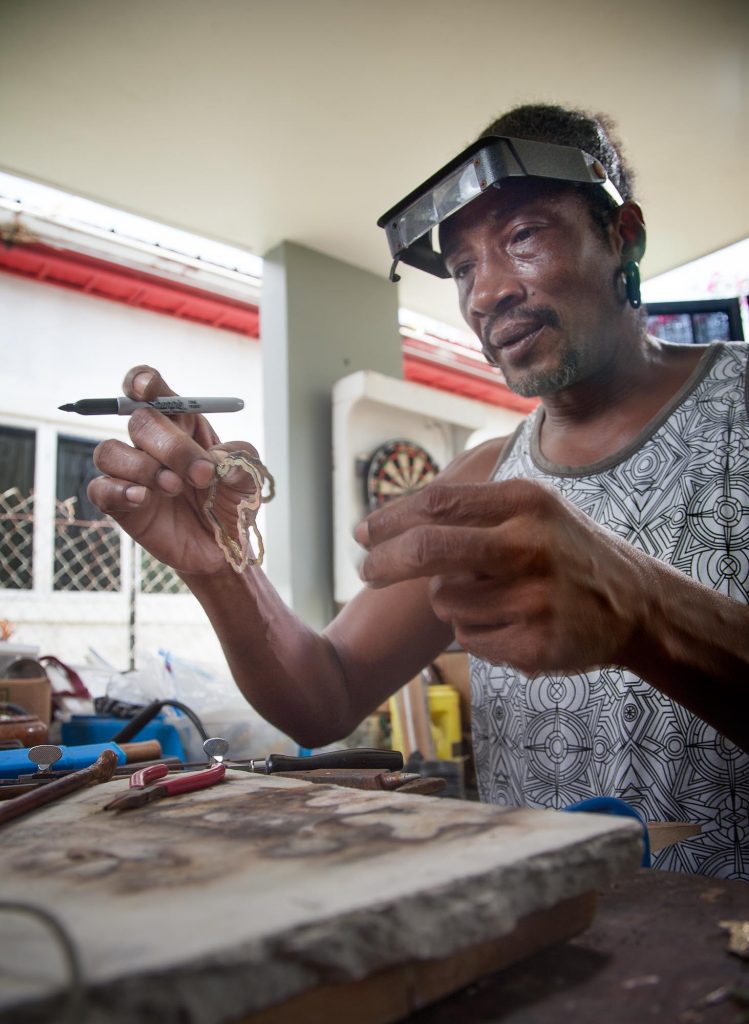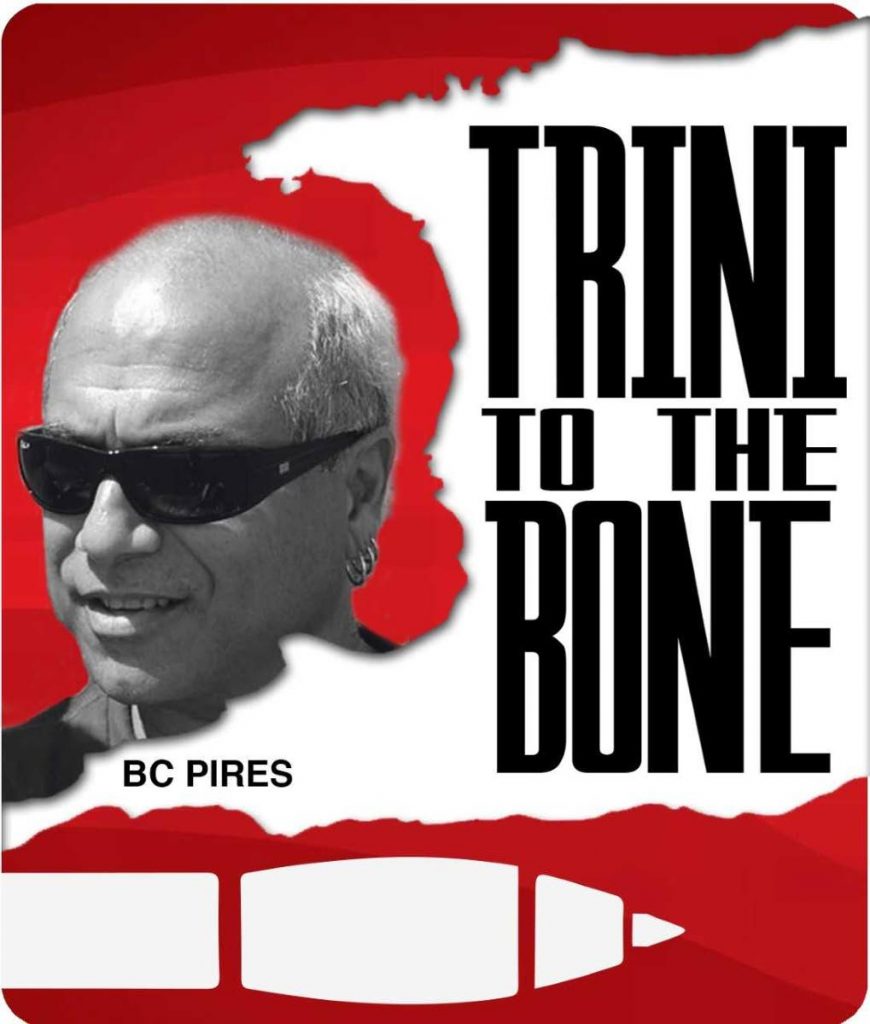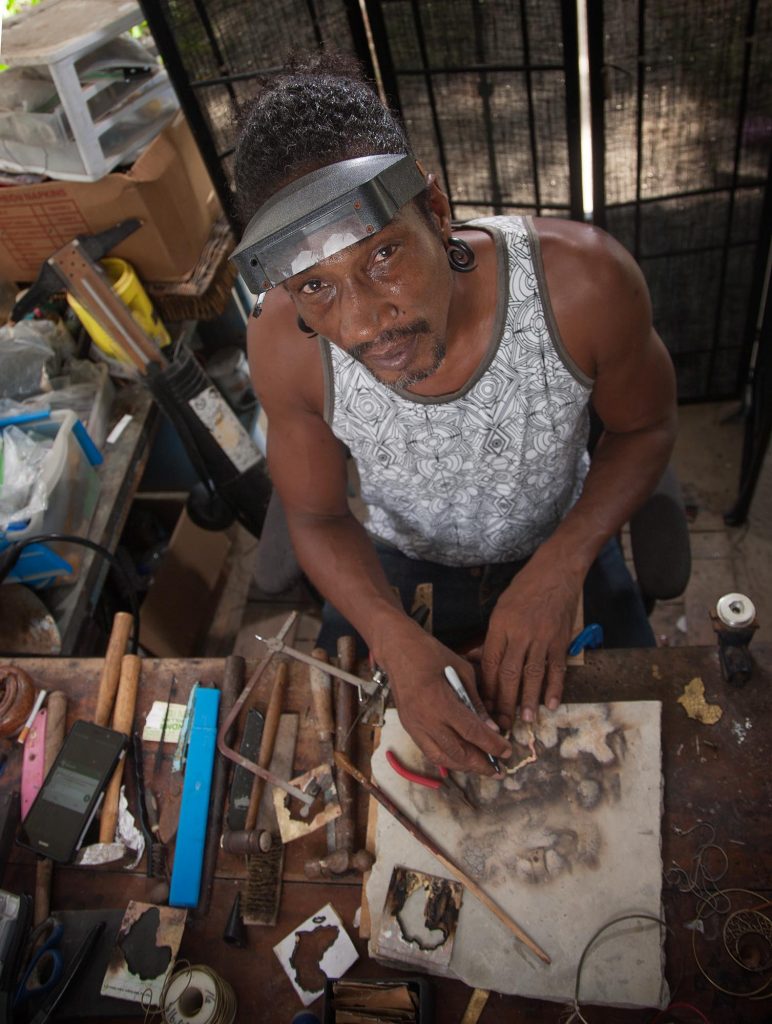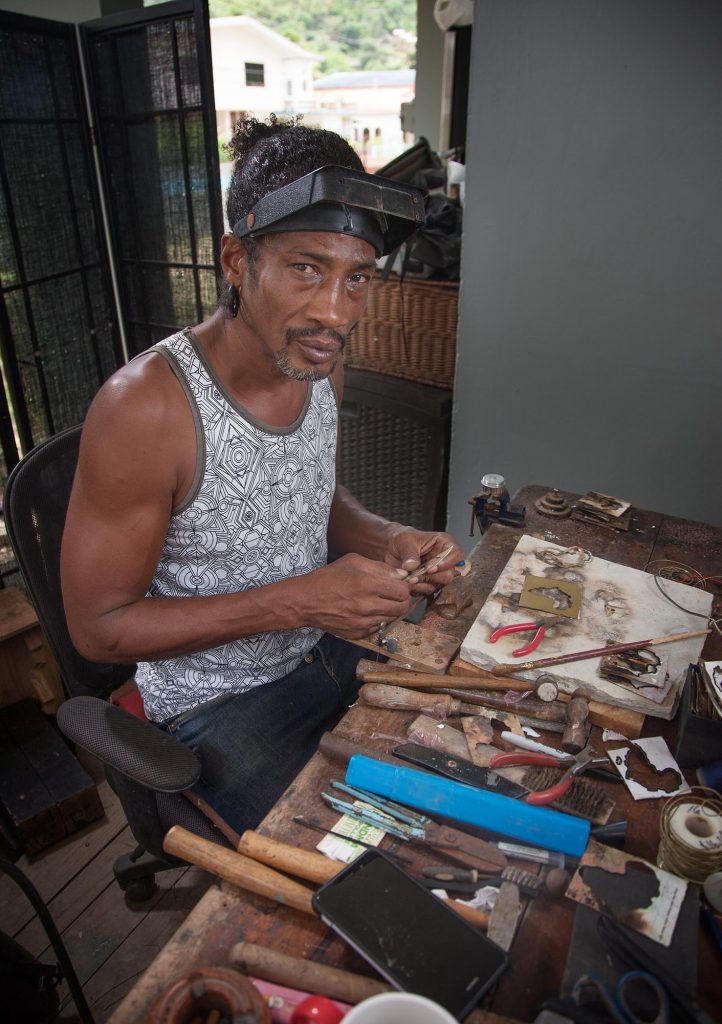Wired to an aesthetic called Trini

AS TOLD TO BC PIRES
My name is Johann Mohammed and I make wire jewellery by hand. This is what I do, it’s not a hobby on the side.
I have a Dutch first name and a Muslim last name. My dad is dougla. His father was a black Madras Indian, one of the first Indians to settle in Tobago, and his mom was a staunch African Tobago woman.
I was born in Tobago, but my parents came over to Trinidad when I was still a baby so I grew up in Trinidad. I went back to Tobago for August holidays.
So my roots are firmly planted in Tobago but I myself grew in Trinidad.

Tobagonians may differ but, how I see it, “Trini” encompasses “’Bago.” So I basically call myself a Trini.
I’m 54 years old this year.
After leaving school, I spent three and a half years in the Coast Guard, because my dad was in the Coast Guard.
Then, in my early 20s, I migrated to the States and lived in New York City for about seven years. Which I think was instrumental in opening up my creative eye.
My day job was as a bicycle messenger – got licked up sad plenty times. I started painting T-shirts by hand as well as my jeans and so on.
Ten years ago, I did the full-time, two-year traditional jewellery programme in Trinidad at MIC (a technical and vocational training agency of the Ministry of Education).

It was kind of hard on me, at my age, 40-something, the oldest guy in the class. But I said, “You know what? Let me do this!”
I didn’t have the traditional design sense for the kind of jewellery that you see fellas making in town. That just wasn’t my aesthetic.
All the wire stuff, I learned that on my own. MIC taught me traditional bench jewellery.
So I sort of developed my own style, very minimal, but still very contemporary and still making a statement. And it’s taken off.
I am the CEO – and chief cook and bottle-washer – of African Art. I make most of the stuff myself but some of the stuff is imported, when I go to Turkey, but even that is handmade.
When I work, I work, so I usually have a lot of stock. But some days I just rock back.
I like to travel. I usually go to London around August, spend two to three months there, and travel on from there. I come back just before November. People say travel is hectic but it’s my relaxation. I’ve been to Turkey, Venice, Paris, Amsterdam, Ethiopia.
This year, I want to go to Singapore, Thailand, Malaysia, Cambodia, run around there for about a month, see what I can learn.
Last year, I did some London markets like Portobello Road, Brixton and in front of the Tate Modern. I want to do Camden Town and another big market centred around African Fashion Week called, “Africa in the Square” that they keep in Trafalgar Square.
Because the African Diaspora is spread all over the world, African art jewellery, to me, represents the ancestral (vibe) that I’ve picked up.
It’s like Noah’s Ark: I’m bringing two of this, two of that, two of the other to the New World.
My aesthetic is very western, not really traditionally African. I wouldn’t want to pigeonhole myself. I’d say my style is more tribal and ethnic. I’m influenced by a lot of cultures.
Hey, my last name is Mohammed!
You have to know when to stop when you’re working in minimalist styles. I use myself as my muse. I’ll try on (whatever I’m making), see if it works. Over the years, I’ve learned that, sometimes, less is more.
I got my hat in London and that’s the next foray I want to get into: I want to go and do a course in making traditional block hats like they do in London. That and men’s shoes.
I find we don’t have nice men’s sandals in Trinidad any more. We have the same Drag Brothers’ style from 50 years ago!
I mean, allyou ent change? Allyou ent evolve? Really? In 50 years?
’ll make some of them mad but I’m coming for them!
One of the best parts of my job is meeting people and satisfying customers and they like what you do – but nothing beats the act of creation. When you have an idea in your head and you physically manifest it, that’s the joy of the work.

I could be working in an office somewhere. That’s what I did in the Coast Guard – I wasn’t going out to sea on the boats, I was in admin, in the office, at a desk. Filing documents and so on. I can swim, but not far.
But working in an office wouldn’t make me as contented as I am now. Maybe if my bank account was fat…
The bad thing about my job in Trinidad is the lack of opportunities for sales, because this is my nine-to-five. I’d like Trinidad to have an arts market every weekend, like London’s Portobello Road or Camden Town. But we’re not there yet, although we should be, with the number of artisans we have in Trinidad. We could give people a quality experience in terms of atmosphere and the products.
The crime needs to be eradicated because it’s bringing down the entire country. And a lot of the crime comes out of desperation, because young men have nothing else to do. Young people want to have the latest brands, $1,000 sneakers, so somebody gi’ them a gun!
We have to give the youths something to do where they could generate an income.
Trinis are one of the most creative and diverse peoples of the Caribbean. In terms of the wide cross-section of races that coexist very nicely, basically, most times. We have something to offer the world.
I wouldn’t go for the (popular) answer and say TT is home to me. It’s a place that I like to return to, because this is my roots.
But in my heart, I believe I’m a citizen of the world and there’s a whole planet out there for me to explore; and, the more I explore, as a Trini, and come back here, is the more I can come back and give to the people here and add more to the flavour we already have.
Read the full version of this feature on Wednesday at www.BCPires.com


Comments
"Wired to an aesthetic called Trini"